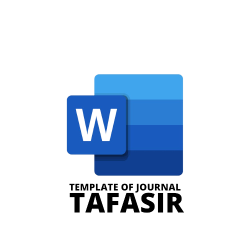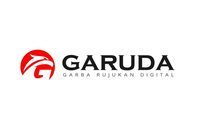AL-QUR'AN INSIGHTS ON WORK ETHICS
Abstract
Full Text:
PDFReferences
Al-Qur'an and its translation
Ahmad Musthofa al Maraghi, Tafsir al Maraghi, (Semarang: PT. Karya Toha Putra, 1994).
Andrew S. Denney and Richard Tewksbury. (2013). How to Write a Literature Review (2), Journal Of Criminal Justice Education 24, no. 2
Azhari Akmal Tarigan, Introduction to Economic Theology, (Medan: FEBI-UINSU Press, 2014).
Clifford, "Culture and Religion", (Yogyakarta: Kanisius, 2000).
Didin Hafhidhudin and Hendri Tanjung, Sharia Management in Practice, (Jakarta: Gema Insani, 2003).
Faqih, Aunur Rohim, Guidance and Counseling in Islam, (Yogyakarta: UII Press, 2001).
H. Salim Bahreisy and H. Said Bahreisy, Vol. 9
Hamka, Tafsir al-Azhar, (Jakarta: Pustaka Panjimas, 1985).
Hamzah Ya'qub, "Islamic Work Ethic", (Jakarta: CV Ilmu Jaya Guidelines, 1992).
Izzuddin Al-Khatib At-Tamimi, "The Value of Work in Islam", (Jakarta: CV. Pustaka Mantiq, 1992).
Jansen H. Sinamo, "8 Professional Work Ethic", (Jakarta: PT. Malta Printindo, 2008).
John M. Echols and Hassan Shadily, Indonesian English Dictionary (Jakarta; PT Gramedia Pustaka Utama, 2005).
KBBI Offline 1.5.1
Lajnah Pentashihan Mushaf al-Qur'an Research and Development and Training Agency Ministry of Religion, Work and Employment (Thematic Interpretation of the Qur'an), (Jakarta: I Can, 2012).
Musa Asy'ari, Islam, Work Ethic and Economic Empowerment of the People, (Jakarta: Lesfi Publishers, 1997).
M. Quraish Shihab, Tafsir Al-Misbah: Message, Impression and Harmony of the Qur'an, (Jakarta: Lentera Hati, 2002).
Nasrudin Baidan, "Tafsir Maudhu'i, Qur'anic Solutions to Contemporary Social Problems", (Yogyakarta: Student Library, 2001).
Nursalam. (2016), Research Methods: A Practical Approach,.
Sayyid Qutb, Fi Zilal-Qur'an, (Jakarta: Gema Insani, 2001).
Suharso and Dra. Ana Retnoningsih, Big Indonesian Dictionary, (Semarang: CV. Widya Karya, 2009).
Shaykh Imam al-Qurthubi, "Tafsir al-Qurthubi", (Jakarta: Pustaka Azzam, 2009).
, p. 799-802 Thohir Luth, Between the Stomach and the Work Ethic in an Islamic Perspective, (Jakarta: Gema Insani Press, 2001).
Teuku Muhammad Hasbi ash-Shiddieqy, Tafsir al-Qur'anul Majid an-Nur, (Jakarta: Cakrawala Publishing, 2011).
Toto Tasmara, Cultivating an Islamic Work Ethic, (Jakarta: Gema Insani, 2002).
Yusuf Qardhawi, Islamic Tips for Alleviating Poverty, (Jakarta: Gema Insani Press, 1995).
DOI: https://doi.org/10.62376/tafasir.v2i1.26
Refbacks
- There are currently no refbacks.

This work is licensed under a Creative Commons Attribution 4.0 International License.
.png)
.png)
_1.png)



_(1).jpg)

.png)
.png)